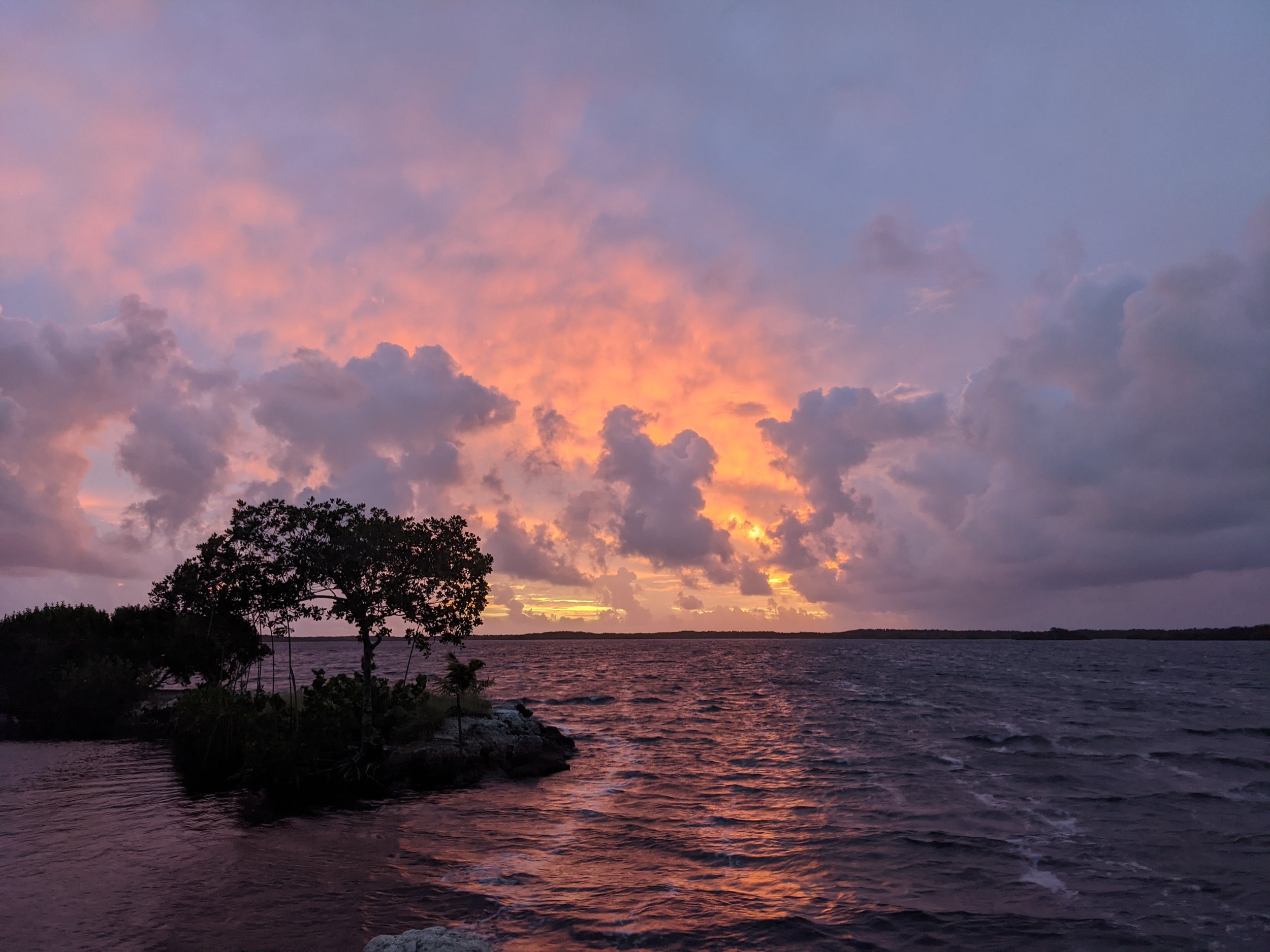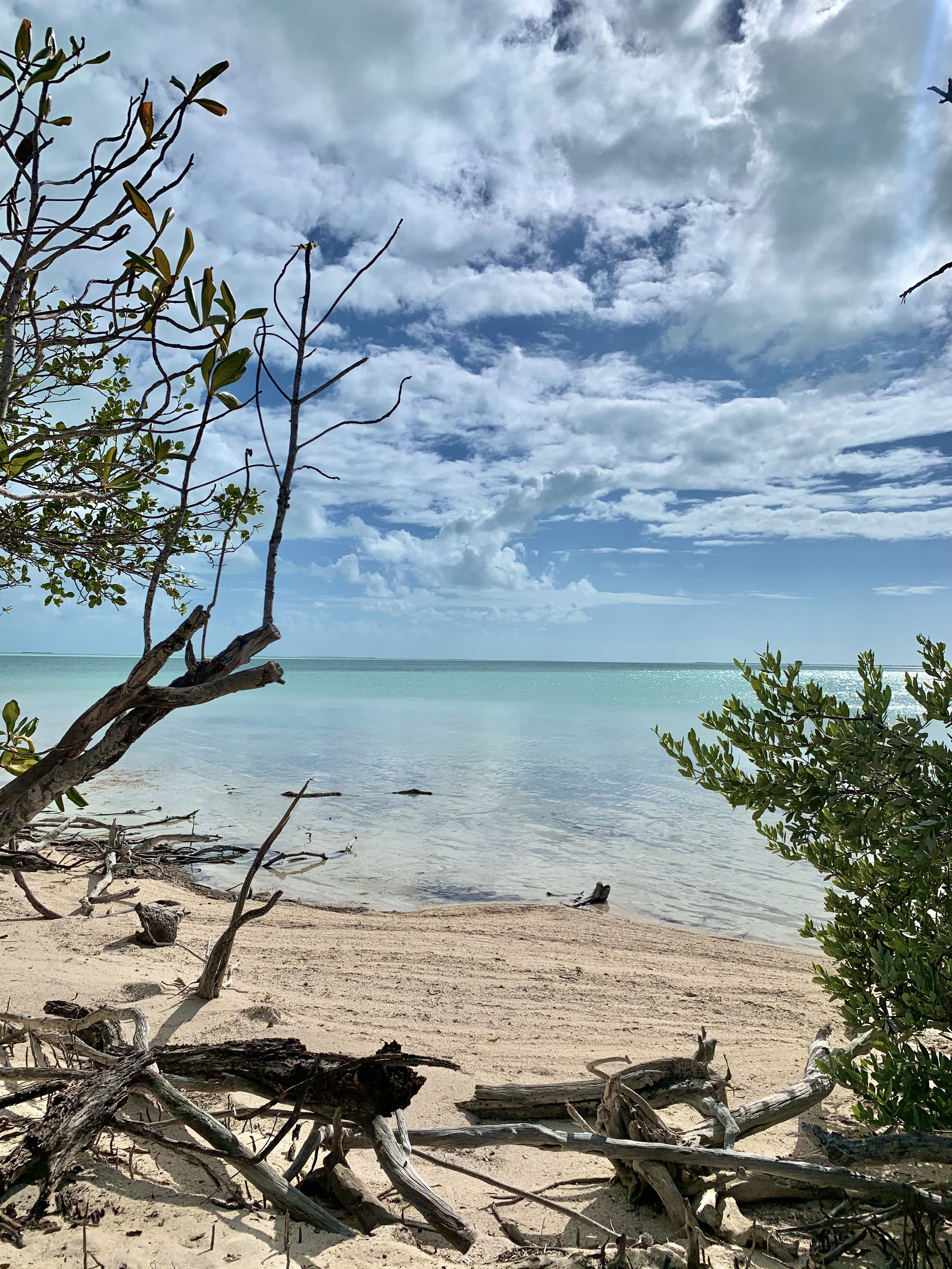
We at MarineLab have the privilege to teach on and learn from land once stewarded by the aboriginal Tequesta, Calusa, and Matecumbe cultures. Additionally, the coastal waters of the Keys we use as our outdoor classroom are closely connected to the Everglades, a wetland habitat that now belongs partially to the Seminole and Miccosukee. As educators, we commit to sharing the heritage of our unique Florida Keys environment and to promoting its preservation for future generations.
The Land We’re On
We at Marinelab acknowledge that we work, gather, and learn on ancestral land, some of which was never legally ceded to the United States. It is an honor and a privilege to teach on and learn from land that has been cared for by communities past, present, and future. This began with the aboriginal Tequesta, Calusa, and Matecumbe cultures, and continues today with the Seminole tribe of Florida and the Miccosukee Tribe of Indians of Florida. As an educational institution, we are obligated to learn about the land we use as our outdoor classroom, share the story with others, and disrupt the erasure of native and indigenous people.
Much of the land in the Keys that we utilize for the purposes of education was inhabited for thousands of years by the resident Matecumbe as well as the Tequesta and Calusa cultures. Up until the mid 18th century, these aboriginal hunter gatherers sustainably utilized the Keys habitat for food as well as a home. Archeological evidence points to an aboriginal settlement at present day Calusa Campgrounds (mile marker 102) that was likely used for ceremonial purposes.
Upon their arrival, the Europeans subjugated many of the aboriginal cultures and most were killed as a result of violence and disease. In the late 1700s, any remaining aboriginal people either fled, were enslaved, or were absorbed into Northern tribes. The Seminole, along with the British, then invaded the Florida Keys and began to utilize the land as a hunting ground. Cooperation with Europeans quickly ended after years of forced removal and the start of the first escalation of the Seminole war in 1817. Forced to retreat deep into the Everglades, the Seminoles learned to live off the land and resisted US removal efforts through two more escalations of the Seminole war, the third ending in 1858 after the US government ceded. Proudly calling themselves the “unconquered” Seminole Tribe of Florida, the Seminoles, as well as the Miccosukee, are present today living on land set aside by the US government.
Deeply impacted by the draining of the Everglades, Seminole and Miccosukee members have committed to protecting this historical and ecologically important ecosystem. Houston Cypress, an activist and member of the Otter Clan of the Miccosukee Tribe of Indians of Florida, heads the “Love the Everglades Movement” which aims to conserve the sacred Everglades environment. Here at MarineLab, we hope to contribute to this movement in our own way. We aim to do this through exploring the Everglades habitat that extends into Florida Bay with younger generations in order to continue to promote its conservation.
Want to learn more about the land you are on? Thinking about writing a land acknowledgement of your own? Check out these helpful links!


